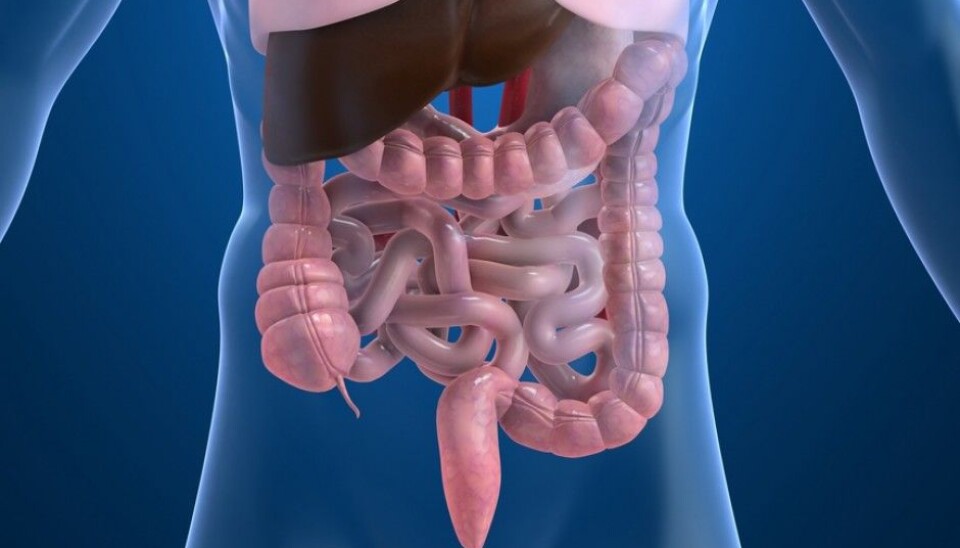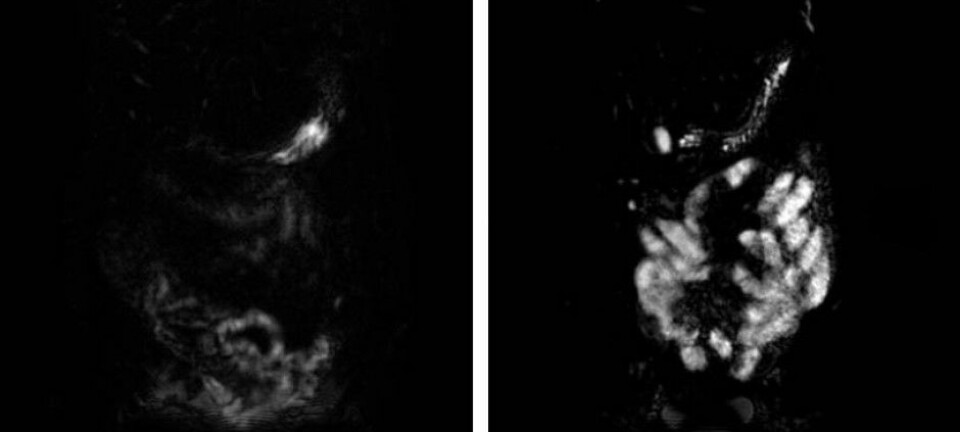
Large intestine may be source of woes for people with irritable bowel syndrome
People with IBS ferment their food in the wrong area of their intestines, a Norwegian study shows. This may explain why a diet low in foods that are poorly absorbed by the small intestine helps with IBS.
FODMAP sounds like some strange kind of geographical tool, but as those with irritable bowel syndrome (IBS) almost certainly know, the word refers to types of carbohydrates that are poorly absorbed by the small intestine.
Because they are poorly digested in people with the disease, food containing these carbohydrates can cause pain and digestive problems.
A number of studies have shown that many people with IBS get better if they cut out foods that contain a lot of FODMAP carbohydrates, such as wheat, rye, apples, pears, watermelon, beans and lentils. However, there is still a great need for more information about how well this strategy actually works.
A new study from Lovisenberg Diakonale Hospital sheds light on what happens with people with IBS when they eat a high-FODMAP diet. The findings, based on a PhD dissertation from Ragnhild Undseth, suggest that people with IBS have problems in their colon.
Too few fats
The large intestine or colon is the last part of the intestinal tract before the rectum. It is built for a special task: fermentation.
As soon as the contents of the small intestine pass into the large intestine, millions of bacteria begin to work on the material.
This soup contains valuable nutrients, especially in the form of hard-to-digest carbohydrates that the small intestine has failed to break down on its own. These are typical FODMAP foods.
Bacteria in the colon begin a fermentation process where they break down these carbohydrates. It's a win-win situation. The microbes acquire energy while simultaneously releasing short-chain fatty acids that the body needs.
The levels of short-chain fatty acids in the blood has been shown to vary as bacteria digest FODMAPs in the intestine. Thus, blood levels can be used as an indication of how effectively —or poorly — intestinal bacteria break down carbohydrates.
Undseth's work shows that bacteria in the intestine of people with IBS do not seem to do their job in the usual way. In short, FODMAPs are not fermented as they should be.
Tested with FODMAPs
"Since you can treat irritable bowel by reducing FODMAPs, we had a suspicion that there could be something going on here," says Undseth.
She and her colleagues recruited 22 patients with IBS and 20 healthy people for a comparison.
The researchers took blood samples from the participants. They then gave everyone a dose of lactulose, a FODMAP that is known to cause problems for people with IBS.
After 90 minutes — the average time it takes for material in the small intestines to get into the colon — researchers took blood samples again. They measured the amount of short-chain fatty acids in the samples, which reflects how well intestinal contents are fermented.
No increase in fatty acids
The researchers found a clear difference between the groups after they were given lactulose.
The blood levels of fatty acids in healthy people increased, just as might be expected when bacteria in the colon begin to release fatty acids during the fermentation process.
However, in the IBS patients, fatty acid levels were actually lower than in the initial blood sample.
"It seems that the large intestine in people with IBS doesn’t quite do its job the way it should. The fact that there are problems with fermentation may explain the symptoms of people with irritable bowel disease,” says Undseth.
She emphasizes that her study was small and has to be interpreted with caution. When there are so few participants, it doesn’t take much for random factors to interfere with the results.
Undseth nevertheless believes that her results can be a starting point for hypotheses about what may be behind this very widespread disorder and ideas for new therapies.
Fermentation in the wrong place
"We believe that fermentation may be displaced in IBS patients, so that it takes place further down in the colon," says Undseth.
This is consistent with previous studies, which have shown that IBS patients actually have abnormally high levels of short-chain fatty acids in their faeces, which is the opposite of what was shown by the blood tests done by Undseth.
Perhaps the breakdown of carbohydrates in IBS patients doesn’t happen primarily at the beginning of the large intestine, as in healthy people, but further down.
The big question is clearly why.
One of Undseth’s other investigations showed that lactulose caused fluid to collect in the small intestine in people with IBS. She wonders if the abnormal results from both the small and large intestine have some relationship.
“Perhaps the reflex where the colon is supposed to accept the contents of the small intestine doesn’t work,” she said.
Rasmus Goll at UiT— the Arctic University of Norway also studies IBS, but has not been involved in Undseth's work. He believes her results help identify directions for further research.
"It appears that fermentation in the colon is different in people with IBS, which may be an exciting research avenue to pursue,” he said.
-------------------------------------
Read the Norwegian version of this article at forskning.no.

































